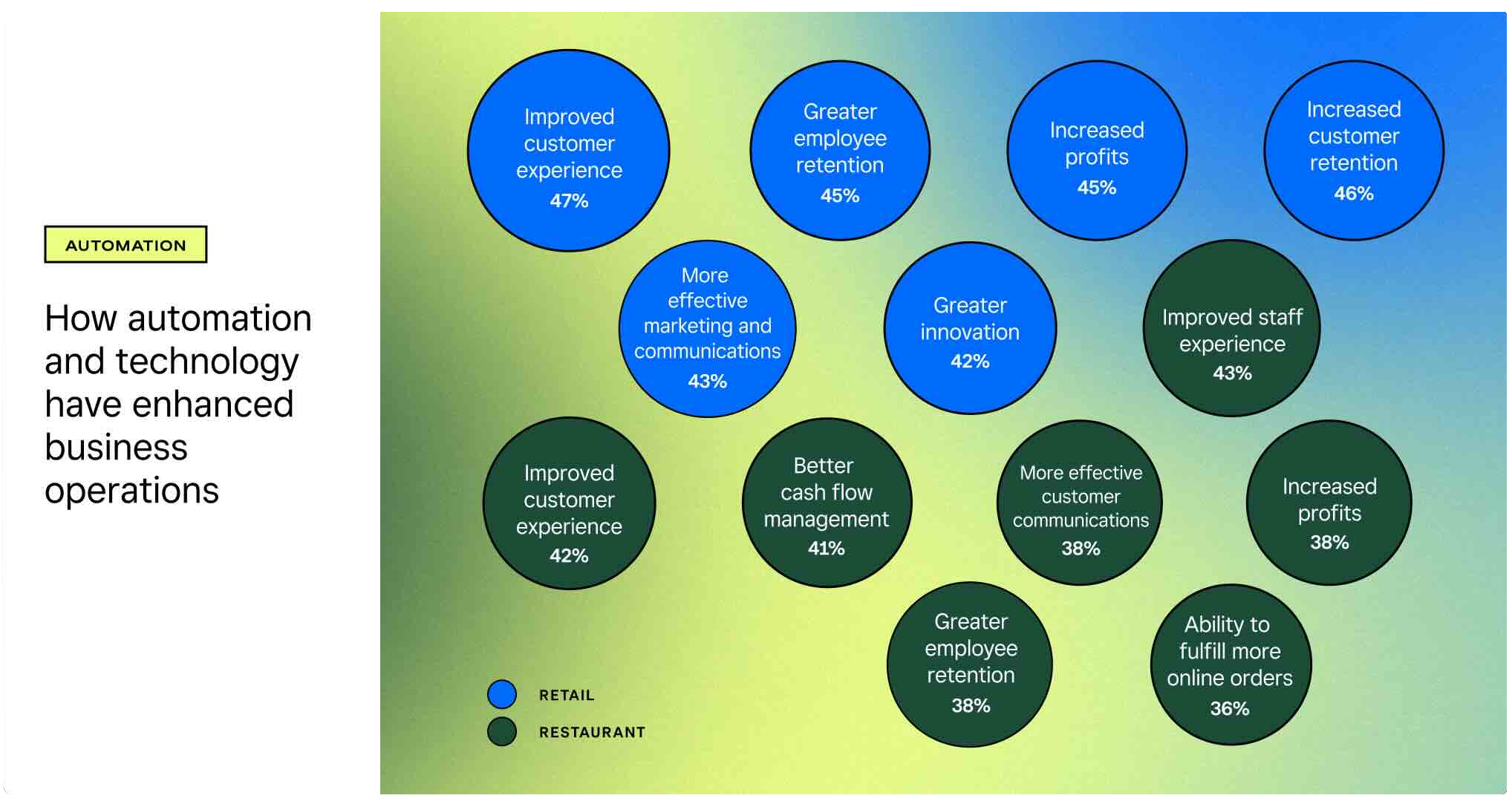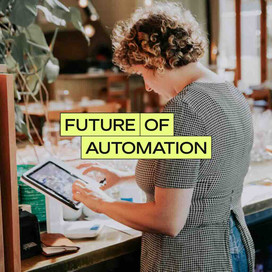Table of contents
The artificial intelligence (AI) era is now, and retailers are either already incorporating AI technologies into their businesses or are looking for the best ways to do so. But with great power comes great responsibility. Like with most new technologies, there are wonderful benefits to using AI, but there are also best practices to be aware of before fully integrating AI into your retail business.
That’s exactly why the National Retail Federation (NRF) released its Principles for the Use of Artificial Intelligence in the Retail Sector. According to the NRF, the principles encourage appropriate and effective governance of AI, promote consumer trust, and facilitate ongoing innovation and the beneficial use of AI technologies. But what does that really mean, and how can retailers leverage AI while protecting their company, employees, and customers?
Here’s what you need to know about using artificial intelligence in the retail space and how it can help uncover not only operational efficiencies, but also improve customer and employee satisfaction. We’ll also review how to adopt NRF’s Principles for the Use of Artificial Intelligence and approachable AI tools to help you get started.
AI and automated retail technologies that put the customer first
When incorporating AI into your retail business, think about how it will impact the customer experience. You don’t want to undermine the trust you have worked hard to develop with your brand loyalists. Be as transparent as possible with customers about how your business is using AI to improve their shopping experience, in addition to the measures being taken to protect their privacy.
Whether you’re using a third-party technology provider or your developers are working on AI functionalities internally, the NRF recommends carrying out regular internal oversight and developing safeguards to prevent unintended AI outcomes that may unlawfully discriminate against any protected class of individuals. Simply put, set up safeguards to ensure your company is not leaking any personal or sensitive customer data.
The good news is that customers actually welcome AI and automation when it makes their shopping experience more efficient, according to the Square Future of Retail Report. The research shows that 67% of retail shoppers prefer automation over talking to live staff when it comes to certain tasks. Think about tracking inventory or ordering out-of-stock products. If you’re looking for a place to start incorporating AI into your business, consider automating repetitive manual tasks that better serve your customers, but don’t forget that there’s no replacement for responsive customer service when it comes to more complex questions that customers can’t easily solve themselves with the help of technology.
“[Artificial intelligence] and automation are transforming businesses and improving their bottom lines. Retailers that have started to invest in automation have already seen meaningful benefits through enhanced customer experiences, employee retention, and increased profit margins. With the current macroclimate, we believe this technology will be instrumental in enabling businesses to future-proof their operations and overcome the hurdles that inevitably come in running a business.” — Katie Swett Miller, head of product, eCommerce at Square
How omnichannel retailers are already using AI

In order to stand out in a crowded marketplace, retailers are betting on personalization. AI can help personalize the customer experience by predicting purchasing behaviors, automating email and SMS communications, and offering customer support on common issues through chat bots.
And omnichannel retailers are hungry to adopt AI if they aren’t already using it. In the Square Future of Automation report, 42% of retailers said that AI-powered product recommendations are their most wished-for AI tool, especially for retailers focused on adding more online options over the next year (45%).
Many retailers are also already using AI in marketing to better serve their customers with conversational commerce, email marketing, and copywriting. You can get started using AI for help with writing website copy, item descriptions, and even image creation using Square generative AI tools.
AI to improve operations and inventory management
According to the NRF, inventory planning, demand forecasting, warehouse operations, and fraud prevention are the other key areas where retailers are using AI. And it makes sense. Inventory management is a thorny area where retailers spend most of their time improving cash flow and reducing their inventory liability.
Luckily, AI and automation are helping take the manual work and human error out of inventory management. For example, Square for Retail dispenses alerts when stock gets low, provides automated inventory sell-through reports, and sends automatic purchase orders to vendors.
(We’ve) reduced administrative time by more than 50% per day (using Square), with time savings coming in the form of time spent on purchase orders, inventory, time sheets, shift scheduling, and getting reports for accounting.”
Morag Cumming → owner of Biltong Emporium
Monitoring the use of AI internally
According to the Square Future of Automation report, 45% of retailers say that their businesses have increased profits as a result of using technology or automation to decrease staff’s hands-on time. While AI can improve employee satisfaction and your bottom line, it’s critical to conduct regular reviews of AI applications that may directly impact your employees.
For example, if your company does opt to use AI to monitor or assess your employees’ performance, it’s critical to set up an ongoing process to review AI-enabled capabilities. These tools should be monitored to ensure they remain in compliance with existing laws and regulations, according to the NRF.
If employees are using publicly available AI tools (like ChatGBT) to find efficiencies in their work, it’s important to establish clear usage guidelines. Employees using these tools may be providing information to AI firms that train large language models. So policies should be in place to avoid inadvertently exposing non-public or sensitive company information.
Whether you’re already using automated technologies and AI in your retail business or just getting started, make sure you’re taking the appropriate measures to protect your customers’, employees’, and company’s sensitive information.
AI in retail doesn’t need to be intimidating. Technology partners like Square make it seamless to integrate AI into your business to reduce manual work and improve both the customer and employee experience.
Looking to integrate AI into your retail business this year?
Download your free copy of Square's Future of Automation Report to explore innovative ways to streamline your operations and improve the customer experience with AI.
Get the report![]()













